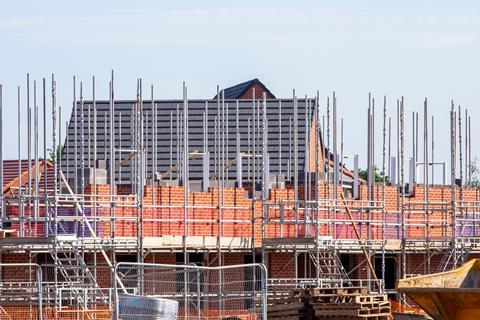Consultation due shortly on limiting 2023/24 rents to help struggling tenants, in move expected to hit development
Social housing providers are bracing themselves for the government to propose a significant reduction in the amount they can increase rents by next year, in a move thought likely to hit housing association development plans.
Housing Today understands the Department for Levelling Up, Housing and Communities is due imminently to consult on plans to limit the rent increases that social landlords can implement in the 2023/24 financial year to around 5-7%, due to ministerial concerns over how the cost-of-living crisis is impacting tenants.

Under current rules in place since 2019, housing providers are allowed to increase rents in a year by a maximum of CPI inflation as at the previous September plus 1%. Unabated, this would see social housing bodies permitted to increase rents by 11- 12% next year, depending upon the final September CPI figure.
Several affordable housing sector sources close to the situation say they are expecting a government consultation, likely within the next couple of weeks, to propose changing the formula, which is contained in the Rent Standard, policed by the Regulator of Social Housing (RSH), for the next financial year.
The sources said the government is expected to consult on a range of options, which could include a rent freeze, and rises of between 5% and 7%. Social housing providers have already gone on record to say that landlords are undertaking financial modelling for lower rent rises than permitted under the existing rules, with opinions divided about the need to keep rents low to help tenants, or to raise rents to allow for investment in development and existing stock.
Sources said that, given runaway build cost inflation in the last year, a failure to increase rents in line with rising costs could force associations to dramatically cut back on capital spend, particularly on development and net zero retrofit plans. The news comes a week after the government published a report warning that the delivery of the 2021-26 Affordable Homes Programme was already at risk because of rapid recent rises in build costs.
One source said: “Development of new homes would likely be one of the first areas providers would have to look at in the event of a rent cap.”
A separate source said: “Any rise below about 7% could have pretty devastating effects. There will need to be exemptions because some organisations would otherwise go bust. And plans to decarbonise the stock is likely to be an early victim of this – landlords will prioritise fire safety.”
Decisions on rent levels are taken by the boards of individual landlords, with the rent standard setting a maximum “cap” for year-on-year increases which landlords can’t breach.

Paul Hackett, chief executive of G15 landlord Optivo (pictured, left), said organisations had been put in a Catch-22 position of wanting protect residents as well as “continue funding the many vital services we provide”. He said: “Any decision about 2023/24 rents will have a compounding effect which will impact future capacity”, adding that “an April rent increase below CPI+1% would restrict our ability to invest in the services tenants expect over the long-term.”
Lord Kerslake, chair of G15 landlord Peabody, called on the sector to pull together to form an “offer” to government of an acceptable rent rise. He said: “There’s no way the government is going to let housing providers put through double digit rent increases in the middle of a cost-of-living crisis. The sector needs to think if there’s a voluntary settlement it can come to.”
John Perry, policy adviser to the Chartered Institute of Housing, said: “The sector recognises that this is an issue on which the government is bound to focus, and social landlords are also very concerned about their tenants’ finances.
“At the same time the government has to realise that any cut in rent will have significant impact on programmes which it views as very important such as the delivery of new homes, fire safety and zero carbon.”

Geeta Nanda OBE, chair of the G15 group of London-based associations (pictured, right), and chief executive of MTVH, said she was “deeply concerned” by the impact of the cost-of-living pressures on the people MTVH provided homes to. She said individual associations will take decisions over rent after “careful consideration” and were “committed to maintaining affordability for residents.”
“To maintain and improve existing residents’ homes, as well as continuing to build much needed new affordable homes, significant investment each year is essential. Rental income is critical to supporting this work”, she said.
Catherine Ryder, director of policy and research at the National Housing Federation, said housing associations were concerned about the impact rising living costs are having on residents. She said: “Housing associations themselves also face rising costs, which will impact on their ability to provide vital services and to invest in new and existing homes. We know this is a particular challenge for housing associations providing supported housing.”
A spokesperson for DLUHC declined to confirm that the department is about to consult on changing the Rent Standard for the coming financial year, but said all government programme were kept “under regular review”.
The spokesperson said: “We set clear limits on how much social housing rents can increase. Social landlords are free to apply lower increases or reduce rents, if they wish to do so and we expect them to carefully consider the impact on their tenants when making decisions about rents.
“We keep all our programmes under regular review, and work with housing associations and other providers to understand any risks to delivery, including the effects of inflation.”










No comments yet